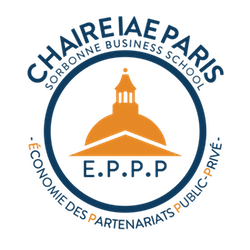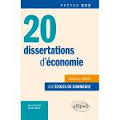Posts de Stéphane Saussier
The Quality of Governance and the Use of Negotiated Procurement Procedures: Evidence from the European Union
Numéro: 2015-3 Eshien Chong, Michael Klien and Stéphane Saussier – The Quality of Governance and the Use of Negotiated Procurement Procedures: Evidence from the European Union Abstract: A key phase in any public-private contracting setting involves the selection of a private contracting partner. Although open competitive tenders (open auctions) are usually the preferred mechanism, recent developments in the academic literature have pointed…
Lire la suitePolitical Contestability and Contract Rigidity: An Analysis of Procurement Contracts
Numéro: 2015-2 Jean Beuve, Marian Moszoro and Stéphane Saussier – Political Contestability and Contract Rigidity: An Analysis of Procurement Contracts Abstract: We compare procurement contracts where the procurer is either a public agent or a private corporation. Using algorithmic data reading and textual analysis on a rich dataset of contracts for a standardized product and service from a single provider, we find…
Lire la suite20 Dissertations d’Économie Concours d’Entrée aux Écoles de Commerce Prépas ECE
Simon Porcher et Martin Merle – 20 Dissertations d’Économie Concours d’Entrée aux Écoles de Commerce Prépas ECE Au travers de 20 dissertations entièrement rédigées, ce livre accompagne les étudiants dans leur préparation aux épreuves d’économie du concours d’entrée aux Écoles de commerce, en intégrant les dernières modifications du programme. Plus qu’une leçon, chaque dissertation montre les…
Lire la suiteA Conditional Markov Regime Switching Model to Study Margins: Application to the French Fuel Retail Markets
Raphaël Homayoun Boroumand, Stéphane Goutte, Simon Porcher, Thomas Porcher Abstract : This paper uses a regime-switching model that is built on mean-reverting and local volatility processes combined with two Markov regime-switching processes to understand the market structure of the French fuel retail market over the period 1990-2013. The volatil-ity structure of these models depends on a first exogenous Markov chain,…
Lire la suiteThe Permeability of Public Contracts: Evidence from Renegotiations in the French Car Park Sector
Numéro: 2015-1 Zoé Le Squeren and John Moore – The Permeability of Public Contracts: Evidence from Renegotiations in the French Car Park Sector Abstract: Recent research suggests that public and private agreements are inherently different. Public contracts should indeed be more permeable to the external (and, more specifically, the political) environment. This paper studies empirically the intrinsic differences between these two…
Lire la suiteWater LPEs in Cities: Three Case Studies
Numéro: 2014-13 Marianne Audette-Chapdelaine, Michael Klien et Maria Salvetti – Water LPEs in Cities: Three Case Studies Abstract: The failure or success of providing public services like drinking water through different institutional arrangements may depend crucially and in a non-trivial way from the administrative capacity. A strand of literature deals with this question and what administrative capacities are required for governments to…
Lire la suiteLocal Public Enterprises: A Taxonomy
Numéro: 2014-12 Stéphane Saussier et Michael Klien – Local Public Enterprises: A Taxonomy Abstract: Local public enterprises (LPE) represent a popular mode of public service delivery in OECD countries. In Europe, where the use of LPEs is particularly pronounced, local governments use not only public enterprises integrated into the administration but also 16,000 legally independent organizations, which they own at least…
Lire la suiteTran PHUONG TRA
Organizational Choices Under Uncertainty: Four Essays on Public-Private Partnerships in France Décembre 2014
Lire la suiteElections and project delivery in public work procurement: A red ribbon effect?
Numéro: 2014-11 Eshien Chong, Michael Klien et John Moore – Elections and project delivery in public work procurement: A red ribbon effect? Abstract: In this paper, we investigate the electoral cycle empirically using data on public work procurement in 1,634 French municipalities between 2005 and 2007. Using a difference-in-difference approach, we compare public work procurement of municipalities whose mayor was a candidate…
Lire la suiteArticle « Le Moniteur » sur le petit déjeuner « La transposition de la Directive concessions : quels enjeux ? »
10 octobre 2014 Le Moniteur a consacré un article aux propos tenus par Jean Maïa (Directeur de la DAJ) sur la transposition de la Directive concessions lors du petit-déjeuner organisé le 9 octobre 2014 par la Chaire EPPP (« La transposition de la Directive concessions : quels enjeux ? »). L’article est disponible sur le site internet du…
Lire la suite


